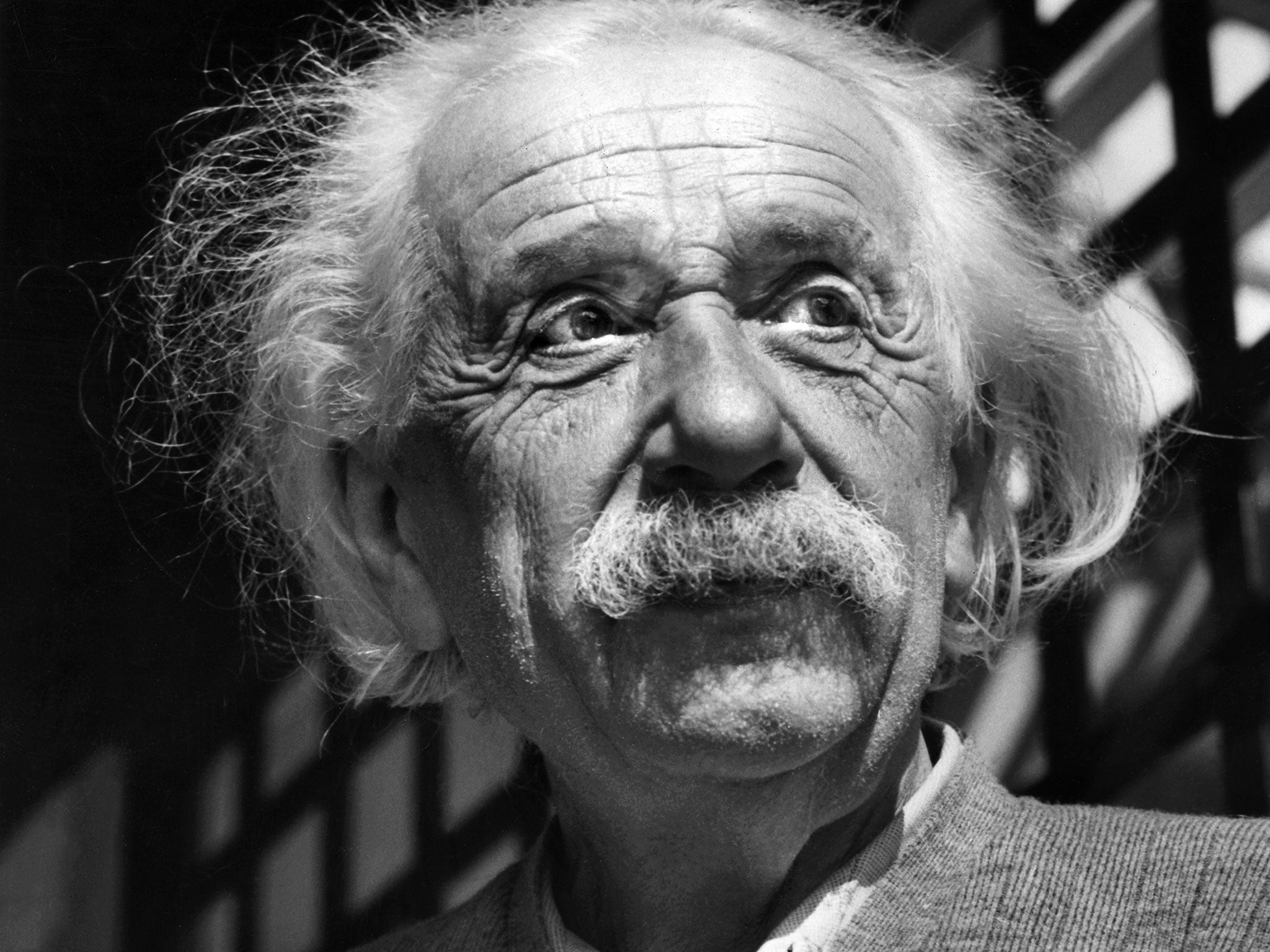Albert Einstein's private letters go up for sale at California auction
The 27 letters written by Einstein will be put under the hammer at the California auction house Profiles in History

Your support helps us to tell the story
From reproductive rights to climate change to Big Tech, The Independent is on the ground when the story is developing. Whether it's investigating the financials of Elon Musk's pro-Trump PAC or producing our latest documentary, 'The A Word', which shines a light on the American women fighting for reproductive rights, we know how important it is to parse out the facts from the messaging.
At such a critical moment in US history, we need reporters on the ground. Your donation allows us to keep sending journalists to speak to both sides of the story.
The Independent is trusted by Americans across the entire political spectrum. And unlike many other quality news outlets, we choose not to lock Americans out of our reporting and analysis with paywalls. We believe quality journalism should be available to everyone, paid for by those who can afford it.
Your support makes all the difference.Some of the greatest scientific advances of the 20th century may have been partially inspired by the gift of a toy steam engine. That, at least, is the upshot of a 1924 letter from Albert Einstein to his uncle Caesar Koch on the occasion of Koch’s 70th birthday.
Einstein, the author of the theory of relativity and winner of the Nobel Prize for Physics three years previously, suggested in the letter that a Russian toy train given to him by Koch when he was a child had fuelled his interest in science.
The letter is one of 27 written by Einstein and put under the hammer at the California auction house Profiles in History. Accumulated by a private collector over several decades, the selection includes letters to the physicist’s sons and to his former wife Mileva Maric. Some are in English, others in his native German. A mixture of typed and handwritten, the letters contain Einstein’s views on multiple subjects beyond his scientific specialisms, from infidelity, to psychoanalysis, to the atomic bomb that his theories helped to create.
The collection was expected to fetch as much as $1m (£645,000) in total. “These are certainly among the most important things I’ve ever handled,” Joseph Maddalena, founder of Profiles in History, told The Associated Press.
The auction house specialises in Hollywood memorabilia but, Mr Maddalena said, “This is not like a signed photo of Marilyn Monroe. These are historically significant... We all know about what [Einstein] accomplished, how he changed the world with the theory of relativity, but these letters show the other side of the story. How he advised his children, how he believed in God.”
Writing in 1949 to Guy Raner, a California history teacher with whom he corresponded sporadically, Einstein outlined his approach to religious belief. “I have repeatedly said that in my opinion the idea of a personal God is a childlike one,” he wrote. “You may call me an agnostic, but I do not share the crusading spirit of the professional atheist... I prefer an attitude of humility corresponding to the weakness of our intellectual understanding of nature and of our own being.”
In one letter, Einstein told his son Hans to take geometry more seriously; in another, he told his son Eduard what he thought of Freud’s theories, saying the psychoanalyst’s lectures had, at first, “led me to admire the author, but not quite convince me of the accuracy of his theories. But since then, based on personal experiences, these convictions have slowly grown in me, at least in terms of his main theses.”
When Hitler came to power in Germany in 1933, Einstein was travelling in the US. He soon wrote to Eduard that he intended to renounce his citizenship, saying: “For the time being, I will not be returning to Germany, perhaps never again.”
Twenty years later, in a 1953 letter, the elderly physicist compared the McCarthy hearings in his adopted home to the rise of Hitler in Germany, describing the anti-Communist witch-hunt as “a systematic move to destroy the political rights of the individual in favour of the unbridled rule of a reckless and adventurous political group, subsidised by big industry. This is the analogy between the present happenings in our country and the events in Germany which brought about Hitler’s dictatorship.”
Join our commenting forum
Join thought-provoking conversations, follow other Independent readers and see their replies
Comments